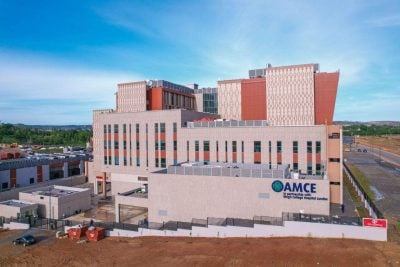Ethiopian Prime Minister Abiy Ahmed refrained from a military response to a disputed parliamentary election in the Tigray region in a bid to limit the economic fallout wrought by the coronavirus pandemic, analysts say.
The regional election held by Ethiopia’s northernmost region on September 9 highlighted a growing rift between the Tigrayan government and the central government as the country shifts towards a more federal system under Abiy and regions jostle for autonomy. The Tigray People’s Liberation Front (TPLF), which claimed victory in the regional parliamentary vote, was a dominant power in the ruling coalition for 25 years and governed its own federal region. After Abiy came to power, the TPLF broke away and relations have since deteriorated.
The government opposed the holding of the Tigray election, which it said was illegal, but refrained from a military response to avoid causing further economic disruption, analysts say.
“Tigray is an important industrial hub so the federal government and the regional authorities are keenly aware of this and don’t want to disrupt the production that comes out of the region,” says Vincent Rouget, Control Risk’s director for Africa.
The vote has so far done little to shake investor confidence in the country, he says, which is nevertheless reeling from the economic losses of the coronavirus pandemic. The IMF predicts the economy will grow by just 3.2% this year compared to 9% in 2019. That has complicated Abiy’s stated ambition to open the country to increased foreign investment after decades of state-led development.
The elections will inevitably slow investment decisions and create uncertainty, but the disruption occurs in the wider context of the economic fallout already caused by Covid-19, Rouget adds.
“This year has been a difficult one for Ethiopia because of the pandemic, the disruption to trade the pandemic has caused, and because of the national elections that have been postponed, exacerbating tensions in the political system.”
The upheaval during the transition has taken some of the shine off the prime minister’s reform agenda. This is partly to do with tensions over the division of power between the centre and the regions, says Ahmed Soliman, a researcher for Chatham House’s Africa Programme.
“The country is 100 million people of multiple ethnicities, cultures, religions and political forces, so this was bound to be a turbulent transition. The political divisions have deep roots and the contestation between a unitary versus ethnic-based system of governance is ultimately a symptom of Ethiopia’s unfinished federal project.”
Want to continue reading? Subscribe today.
You've read all your free articles for this month! Subscribe now to enjoy full access to our content.
Digital Monthly
£8.00 / month
Receive full unlimited access to our articles, opinions, podcasts and more.
Digital Yearly
£70.00 / year
Our best value offer - save £26 and gain access to all of our digital content for an entire year!

 Sign in with Google
Sign in with Google 




